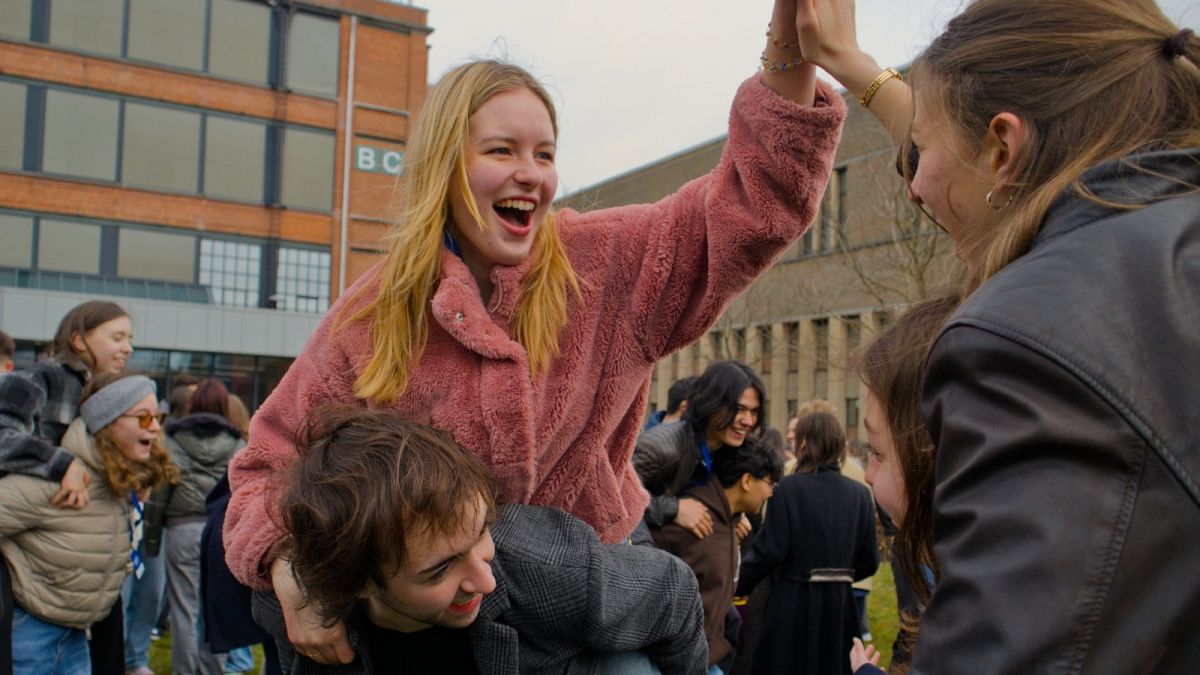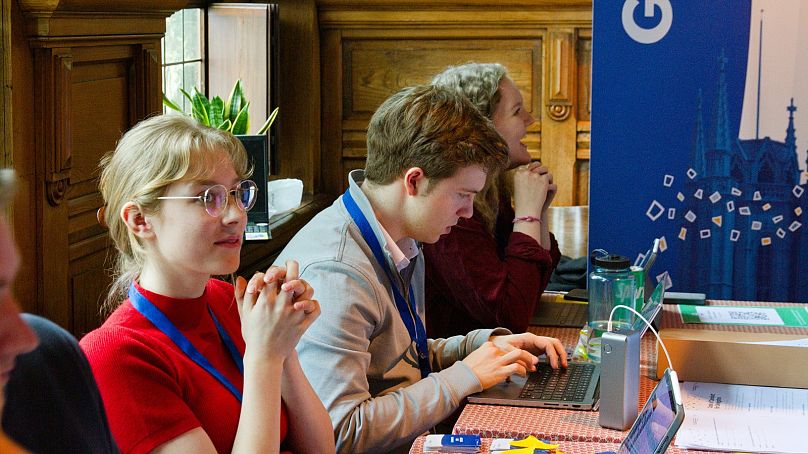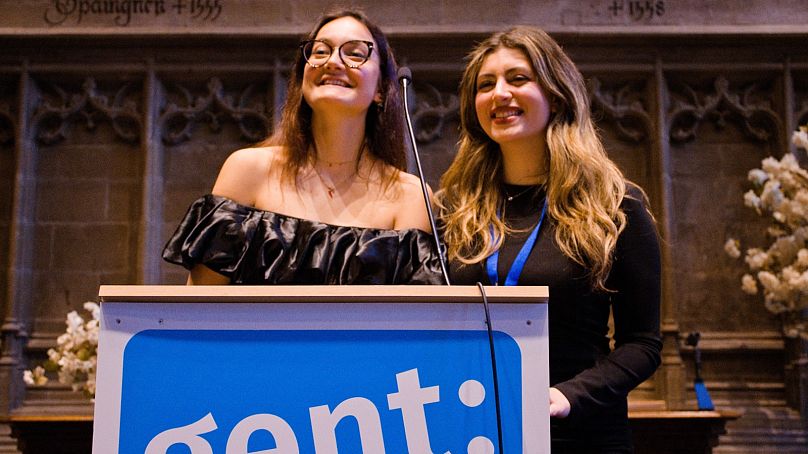What does the ideal candidate look like? Euronews interviewed members of the European Youth Parliament who will be voting in the EU elections for the first time in June.
They're between 16 and 23 years old, we don't know how many are going to vote, but the priorities of the most politically engaged seem pretty clear: climate, equality and security.
'Climate change keeps us awake at night'
Climate change "is an imminent threat", according to Kevin Van Hevel, 22, from Belgium.
"If I think about myself having children in the somewhat near future, I want to be able to put them into a world that's going to thrive and be healthy."
Gabriel Georgiou, 18, from Cyprus, says that the climate emergency is one of those things that keep him awake at night: "It really makes you think about the future, if we have one."
Sofie Ingrid Stor, also 18, from the Czech Republic shares the same concerns: "We should focus more on the Paris climate agreements. Too many countries are ignoring them".
A recent Euronews/IPSOS poll across 18 EU countries confirmed that climate is a key issue to tackle for youngsters.
Fifty-three percent see it as a top priority, while 83 percent consider it at least important.
On and offline threats: Russia and cyberbullying
If global warming keeps some awake at night, for others it's the Russia-Ukraine war.
"Europe is at a crossroads right now. There is a new threat coming from the east, with Russia more aggressive than ever since its invasion of Ukraine," says 18-year-old Finn, Niko Juntunen.
Many young voters don't feel much safer on the Internet either, says Maria Politi, a 16-year-old from Greece who believes the new EU Parliament should immediately look at cyberbullying against minorities.
"Young people spend a lot of time on the Internet, they should be informed about the dangers they may face online, and the impact they can have on their mental health and everyday lives. We should talk about this more."
What is the European Youth Parliament?
The European Youth Parliament (EYP) is an organisation recognised and partially funded by the EU to help increase youth political engagement.
It has around 30,000 members and branches in all European countries as well as in some non-member states, such as Ukraine and Serbia.
Each country elects delegates who discuss and make proposals about specific topics, such as finance, security or climate change.
The Youth Parliament's resolutions are then submitted to the EU, which in 2018 drew up a list of 11 goals to pursue for the next generation.
EYP's Anastasia Zhuckova is positive on what's been done so far but adds that more could be done.
"There are still a lot of marginalised communities and people that are being discriminated against for gender, race, sexual orientation..."
"There are still a lot of social issues, a lot of people that don't make it to the end of the month. A lot of young people that cannot find employment. So, of course, while, we appreciate and we know that efforts are being made by politicians, there's still also a lot to do."
Searching for stars to mobilise voters
As was the case in 2019, the vote of the younger generations could prove to be crucial in increasing the turnout in June's EU elections. In this age category it's generally not very high.
European leaders hope the final phase of the campaign will also feature international stars to draw as many young people as possible to the polls.
Taylor Swift, Rosalía, Måneskin, Angèle and Stromae are some of the names that are being discussed.


